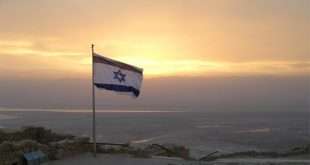 BCN editor’s note: please contact the author for reprint permission.
BCN editor’s note: please contact the author for reprint permission.
President Obama has stated that ISIS poses a larger threat than Iran and that the United States will “start going on some offense” to combat what could become a threat to the United States in a what will become a massive change in the United State’s foreign policy in the Middle East.
The US president stated that, “perhaps for the first time, you have absolute clarity that the problem for Sunni states in the region, many of whom are our allies, is not simply Iran. It’s not simply a Sunni-Shia issue.”
Former Secretary of State Henry Kissinger refuted this, stating on Saturday that Iran is a “bigger problem than the Islamic State” and that ISIS is “more manageable” than any confrontation of conflict with Iran.
Kissinger stated, “ISIS is a group of adventurers with a very aggressive ideology. But they have to conquer more and more territory before they can become a strategic, permanent reality.” He compared that to Iran stating, that Iran can “reconstruct the ancient Persian Empire, this time under the Shia label, in the rebuilding of the Middle East that will inevitably have to take place when the new international borders are drawn. That gives Iran a very powerful level from a strategic point of view.”
Israeli officials have expressed the impact Obama’s strategy changes will have on Israel in relation to Iran’s diplomatic efforts to deceive the West on its diplomatic cooperation and ties with the United States, as well as advancements in its nuclear program.
Last week, Israel’s Strategic Affairs Minister Yuval Steinitz expressed concern on bilateral talks between Iran and the United States as well as negotiations with world powers stating, “After a year of talks, Iran is closer than ever to attaining nuclear capabilities.”
On Monday, Steinitz addressed International Atomic Energy Agency satellite imagery of ongoing construction activity on Iran’s Parchin military base, which till this day Iran has denied U.N nuclear inspectors access. Iran has additionally failed to address suspected atomic bomb research according to the UN reports.
Iran has implemented only 3 of 5 nuclear transparency steps that it was supposed to by a set deadline with the IAEA for August 23th. It has not provided information on two issues crucial to the IAEA’s investigation, that of “alleged experiments on explosives that could be used for an atomic device, and studies related to calculating nuclear explosive yields.”
Steinitz stated, “This is clear evidence of Iran’s contrived nuclear antics. Iran’s conduct toward the IAEA casts a heavy shadow on the possibility of reaching a satisfactory comprehensive agreement on its nuclear program.”
A high-level Israeli delegation, led by Steinitz, will travel to Washington this week for talks with senior American officials on the nuclear negotiations between Iran and the six powers. The delegation will exchange intelligence assessments on progress in Iran’s nuclear program.
In an interview Sunday, Obama spoke on his new strategy “both for Iraq and for Syria” that “will hunt down ISIL members and assets wherever they are.” He went on to state that, “We are going to have to work with our regional partners to attract back Sunni tribes that may have felt that they had no connection to a Baghdad government that was ignoring their grievances. And so there’s going to be an economic element to this. There’s going to be a political element to it. There’s going to be a military element to it. “
According to reports released Monday, the United States will extend its campaign against the Islamic State following the formation of a new government in Iraq. Obama stated that the US are “going to be a part of an international coalition, carrying out air strikes in support of work on the ground by Iraqi troops, Kurdish troops,” reports claiming that training and provision of arms to the Iraq army and Kurdish Peshmerga are likely as a second phase in the campaign against the Islamic State.
He emphasized, “Over the course of months, we are going to be able to not just blunt the momentum of ISIL. We are going to systematically degrade their capabilities. We’re going to shrink the territory that they control. And ultimately we’re going to defeat ‘em.”
Obama is scheduled to meet with Congress on Tuesday and will make a public address on Wednesday, just one day before the anniversary of September 11. When asked if his meeting with Congress was for “an authorization of your strategy” Obama stated that he is “confident that I have the authorization that I need to protect the American people” and that the meeting will be focused on the United States being part of an “international coalition” to retake territory that ISIS has captured, in reference to the recently new NATO coalition.
On the Islamic State as a threat to the United States, the president explained that there have been no “immediate intelligence about threats to the homeland” stating that his speech on Wednesday will be for the “American people to understand the nature of the threat and how we’re going to deal with it and to have confidence that we’ll be able to deal with it.”
According to a report released by the New York Times citing Pentagon planners, Obama’s strategy in Iraq and Syria could take up to 36 months.
Photo credit: Joint Hometown News Service (Flickr)
 Amir Tsarfati, a Jewish Christian, is the founder and president of Behold Israel, a news site to correct the scarcity in trustworthy reportage on issues and events impacting Israel, and to resolve the uncertainty about who or what to believe.
Amir Tsarfati, a Jewish Christian, is the founder and president of Behold Israel, a news site to correct the scarcity in trustworthy reportage on issues and events impacting Israel, and to resolve the uncertainty about who or what to believe.
 CURE News and Clergy Blog News and Commentary for Christians
CURE News and Clergy Blog News and Commentary for Christians



